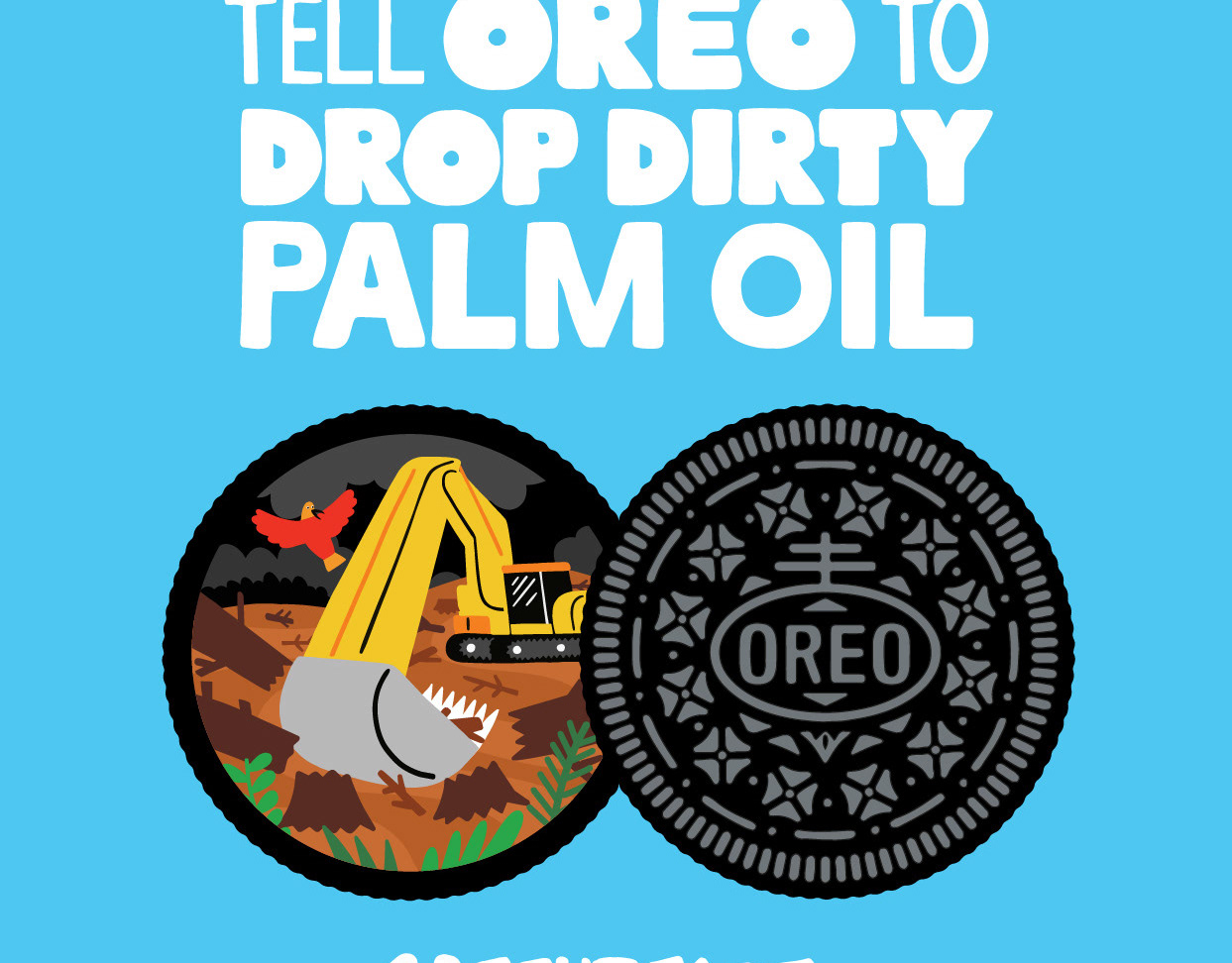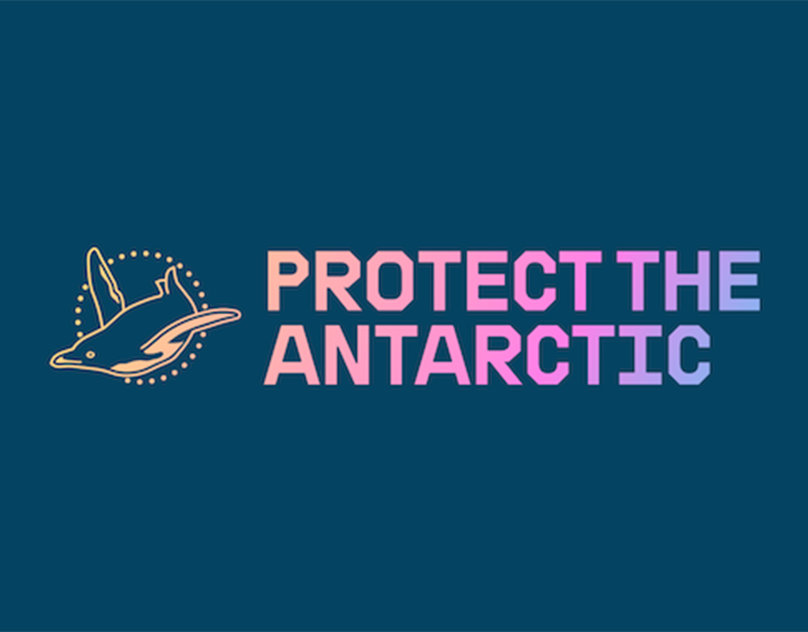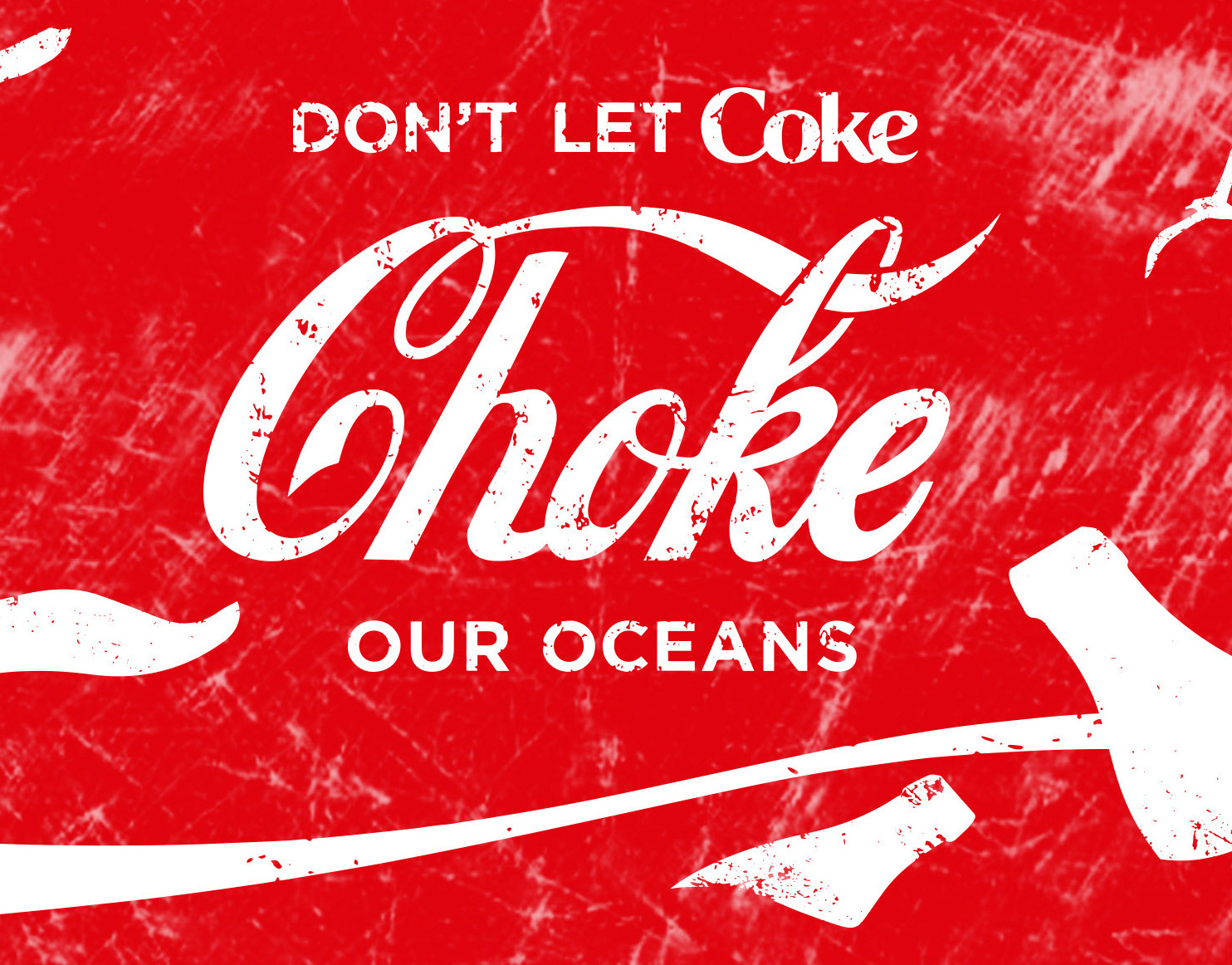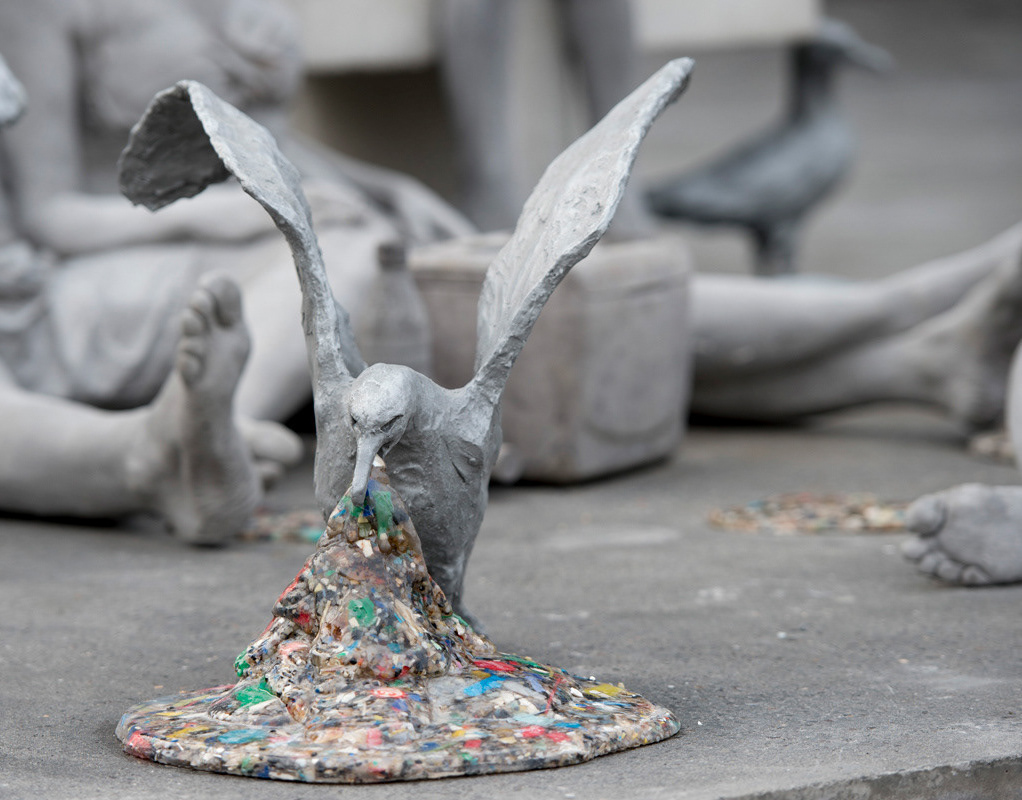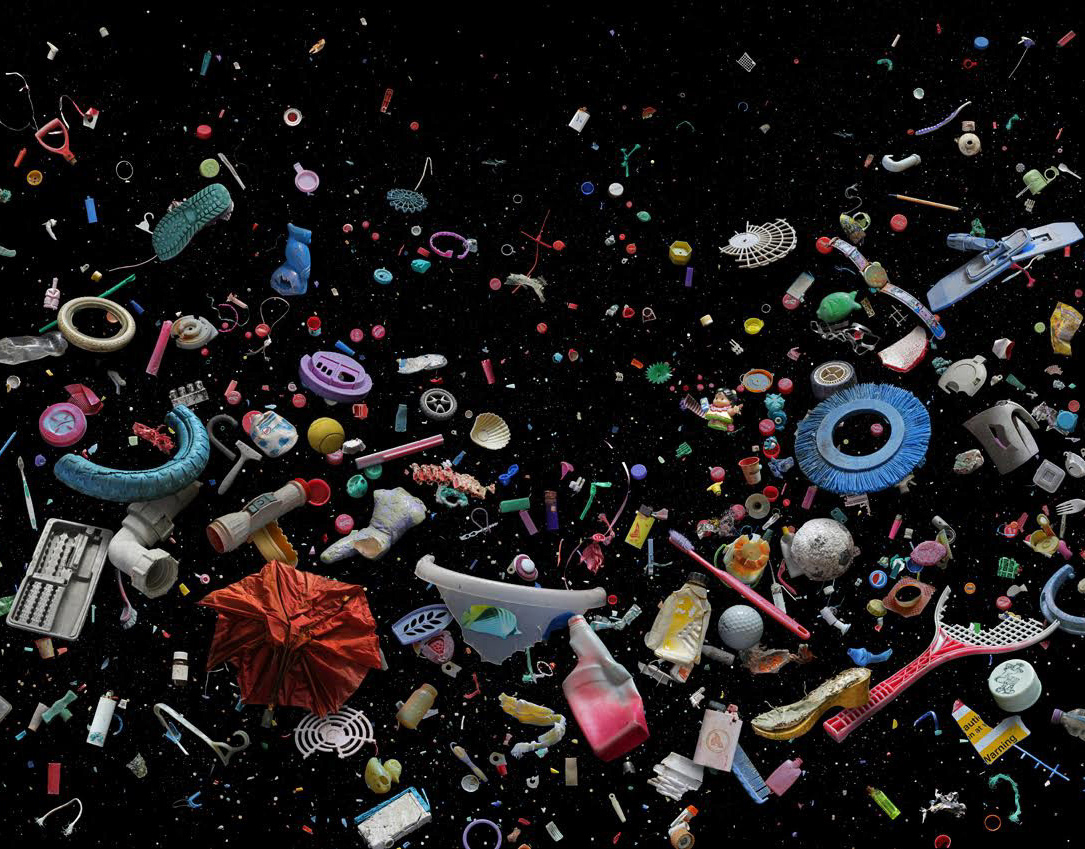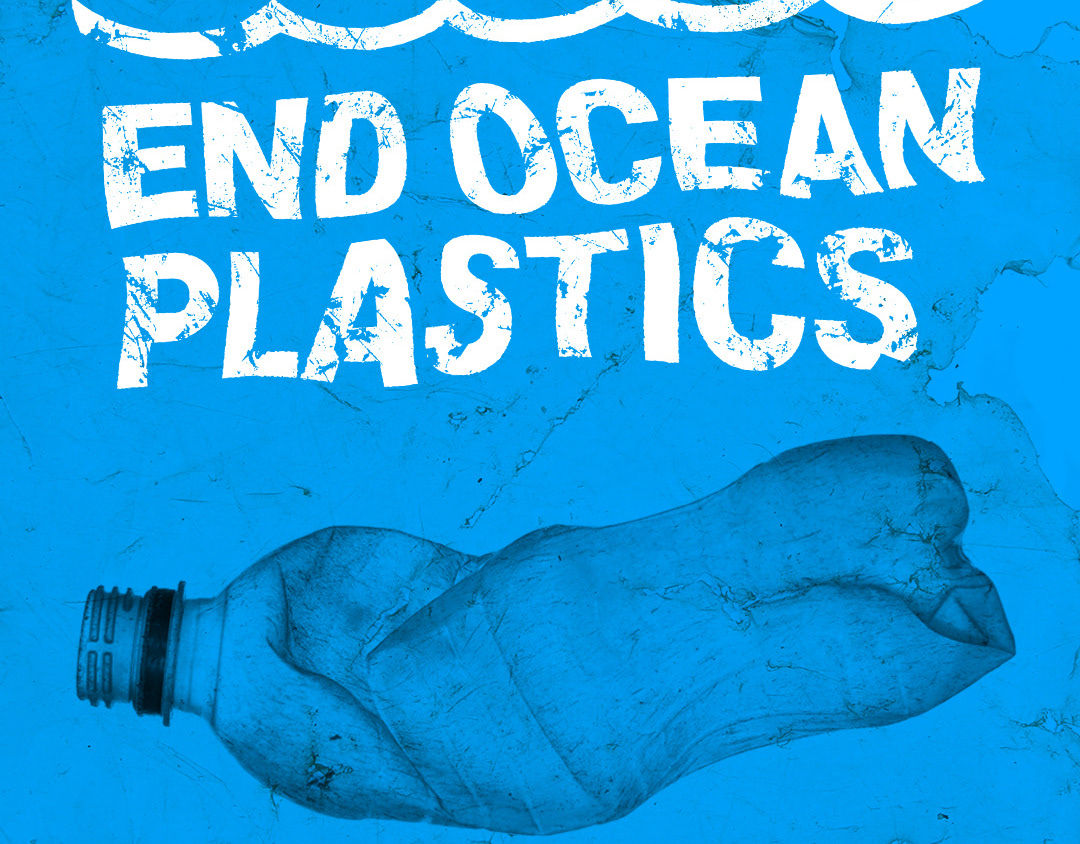Campaign identity: Barclays, The Dirty Bank
Design: Pentagram | Creative direction: Marcela Terán, Greenpeace UK
In 2018, we worked with agency Pentagram to develop an identity for a campaign calling on Barclays to stop funding toxic tar sands pipelines. The identity hijacked Barclays recognisable logo and aesthetics, revealing the real dirty nature of their business.
Barclays is the only UK bank still choosing to fund dirty tar sands pipelines, despite the human and environmental risks. These pipelines would cross Indigenous lands without the consent of many communities; as well as forests, mountains, and rivers; with a huge likelihood of spills. Tar sands are also awfully energy intensive. A barrel of oil from the tar sands creates double the pollution and therefore twice the climate change impacts and destruction of an average barrel of oil.
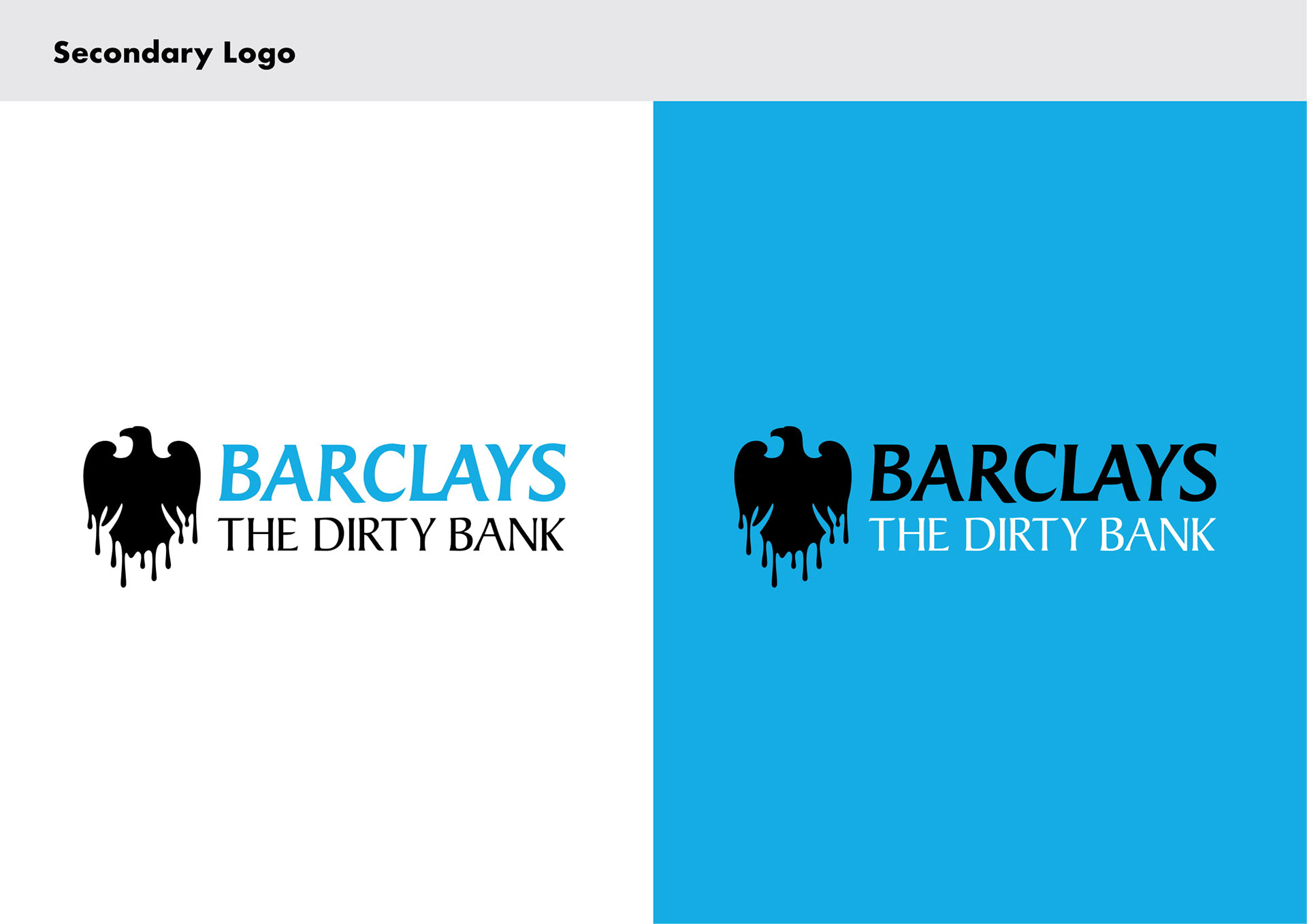
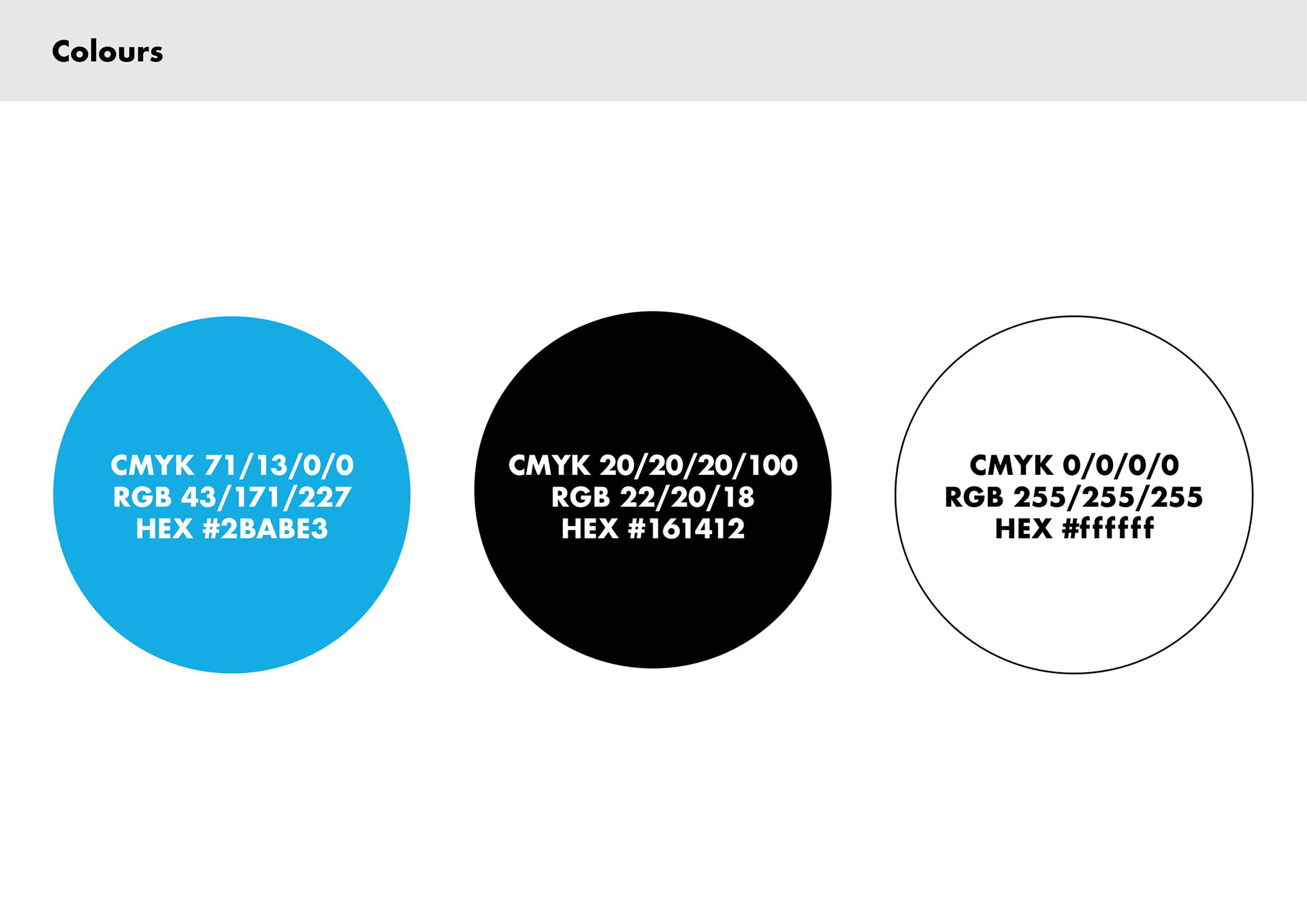
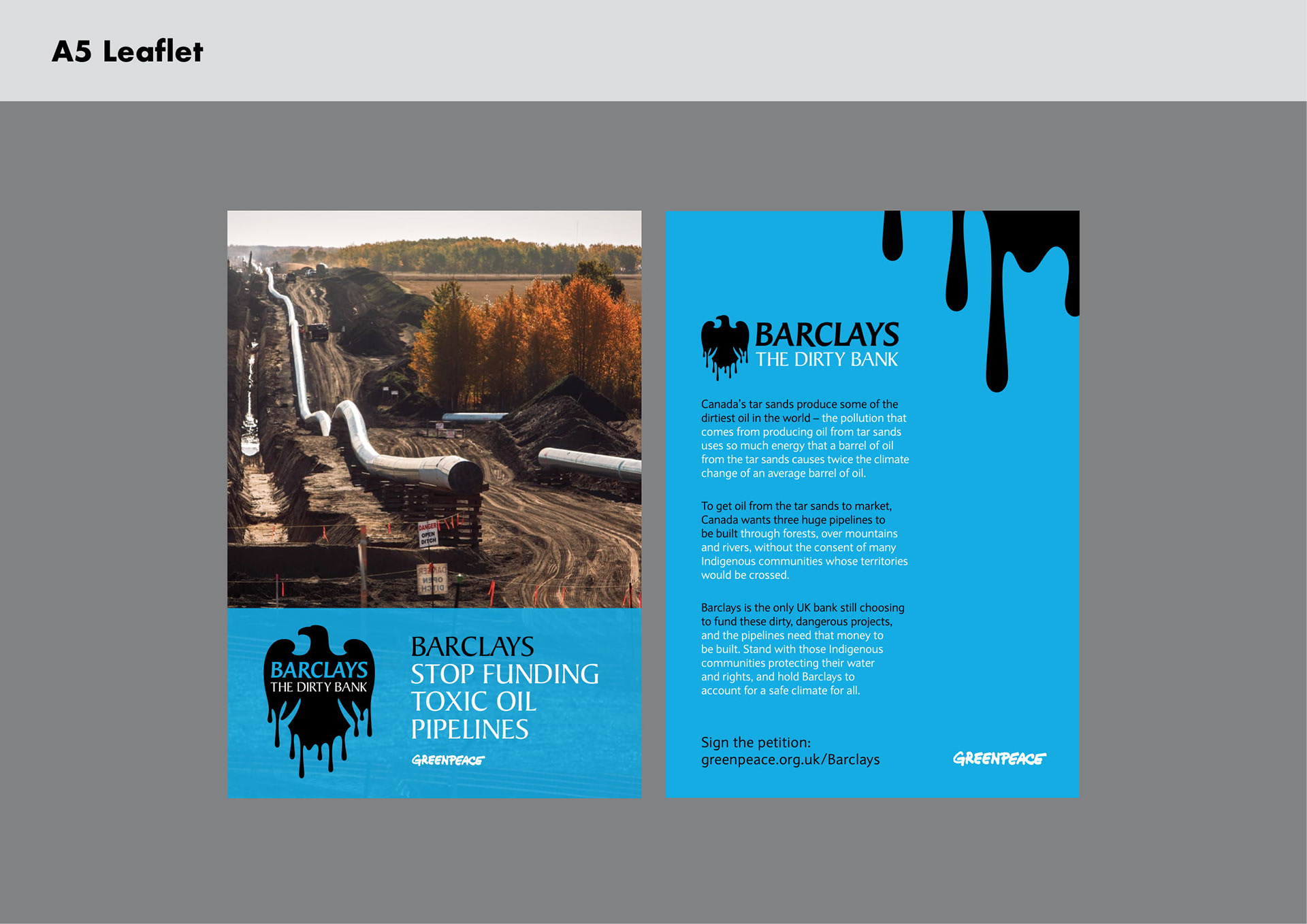
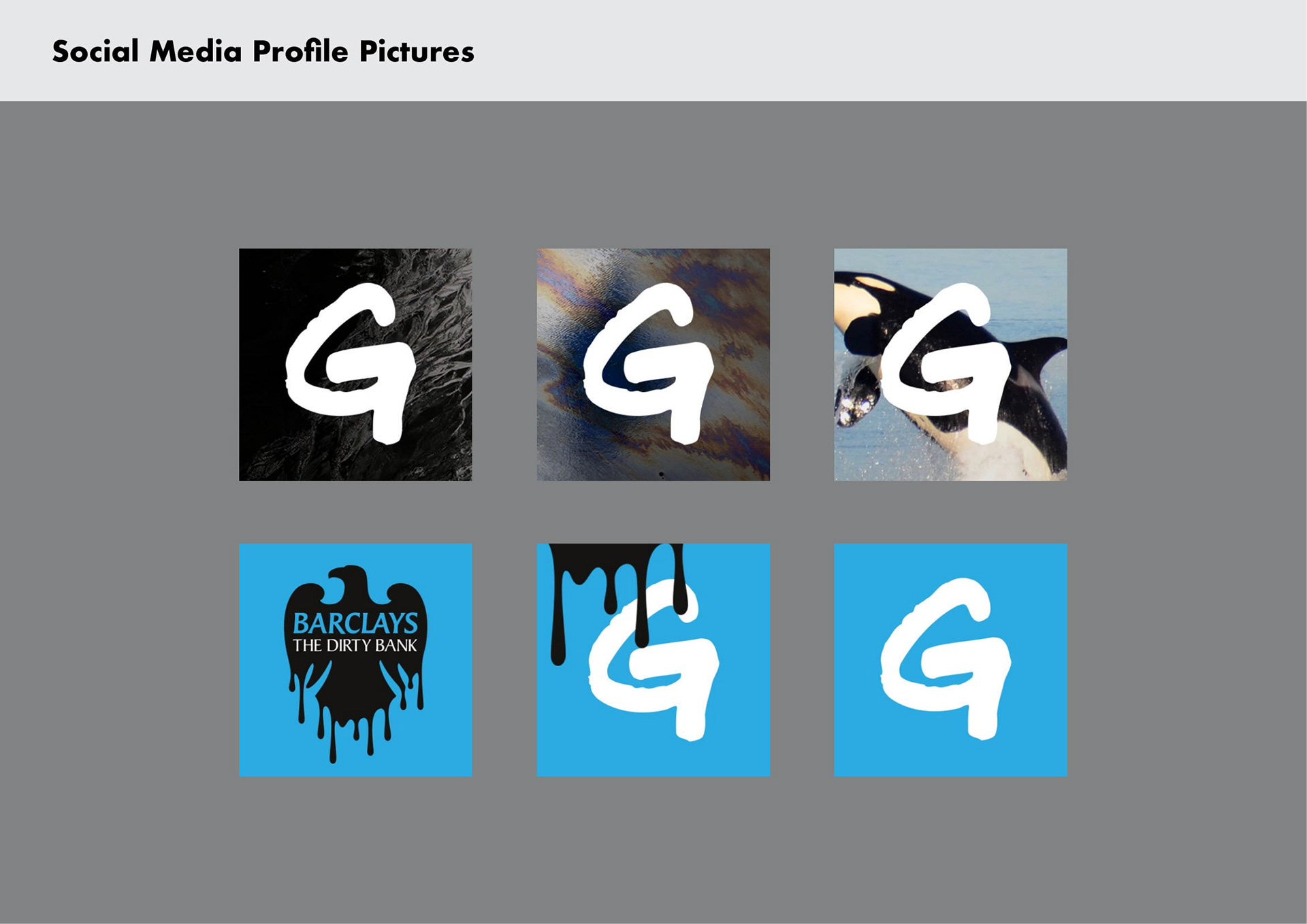
We also identified the really important role Greenpeace volunteer groups could take in this campaign by visiting local Barclays branches to:
- Expose Barclays complicity in the expansion of tar sands pipelines in front of their current and potential customers.
- Provide meaningful opportunities for members of the public to join the campaign, sending complaints or messages to Barclays
- Take pictures of their activity to be shared online or featured on local media, expanding the reach of the campaign.
Stemming from the concept, we worked with Pentagram to design outreach activities and materials that would clearly expose Barclays, the impact of their investment in pipelines, and incorporate the different elements of the story, so passers-by could understand it and want to engage with us.
The resulting materials consisted of a large Cutout prop of a scissor cutting a Barclays card to be used for photos; and a big ATM featuring images of the impacts of tar sands pipelines, with paper credit cards that allowed members of the public to sign the campaign petition and also send a message to Barclays (by inserting it into the ATM).
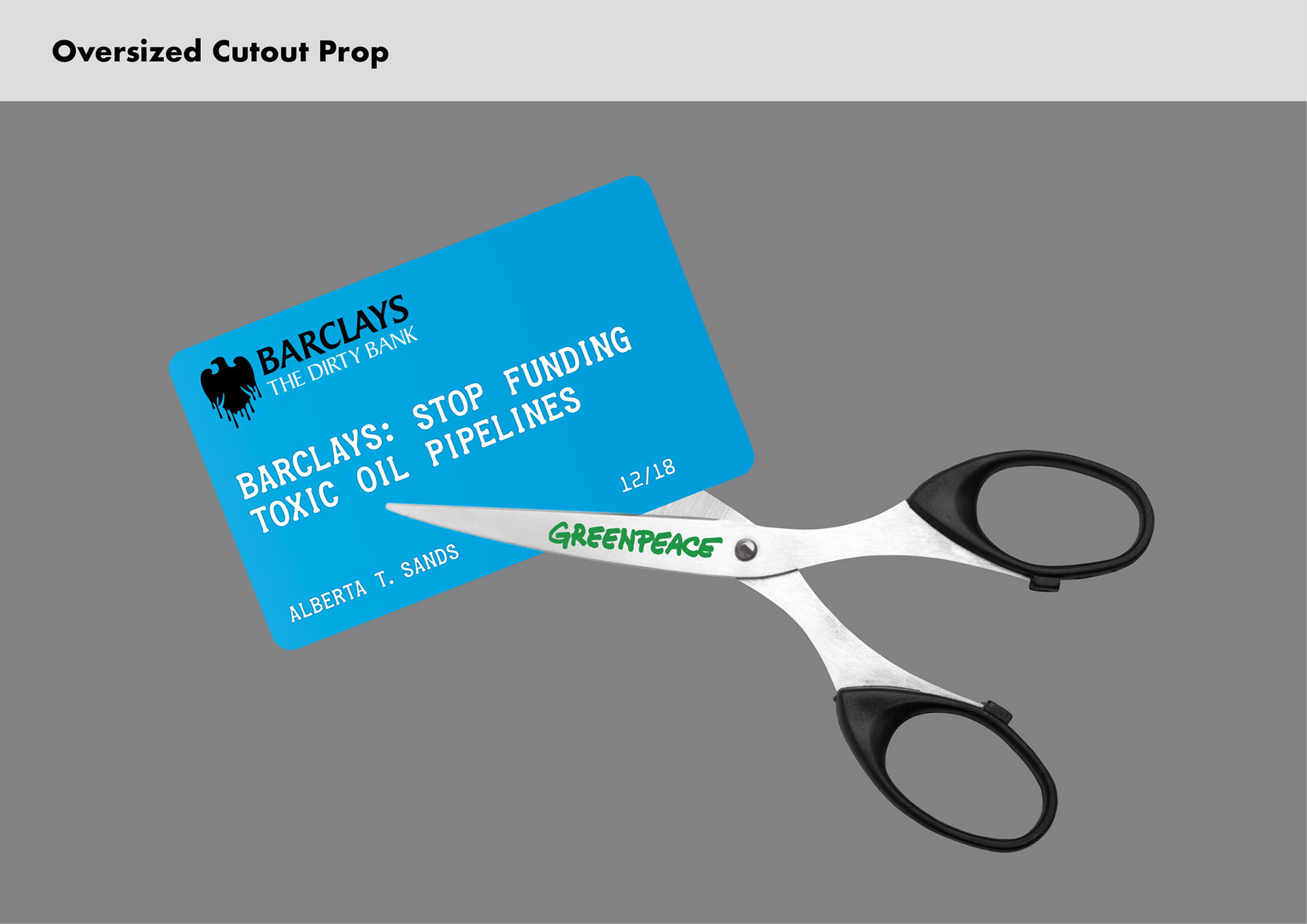
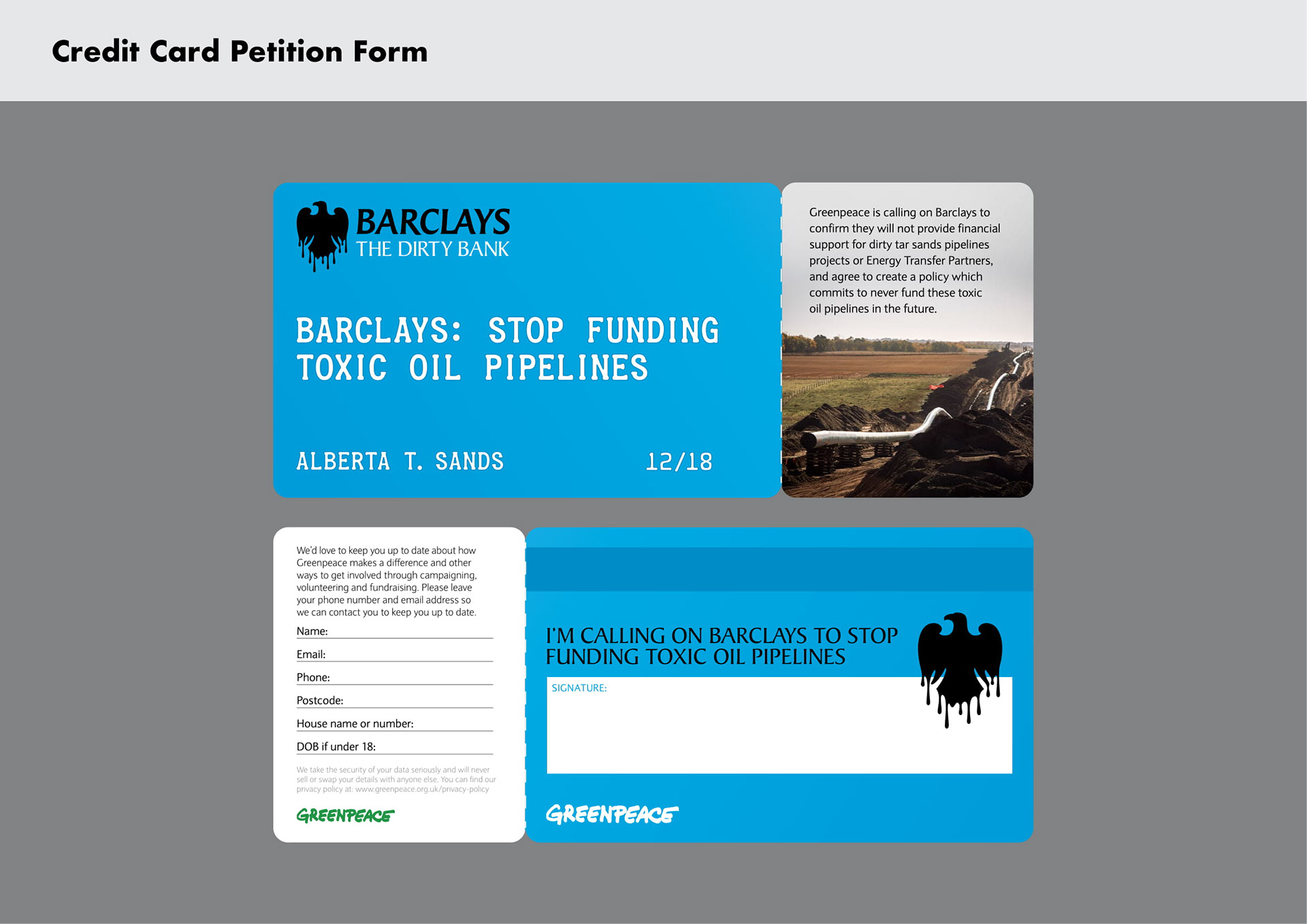
The outreach activities were really successful with approximately 60 groups around the country setting up stalls outside local branches and having hundreds of conversations with the public.

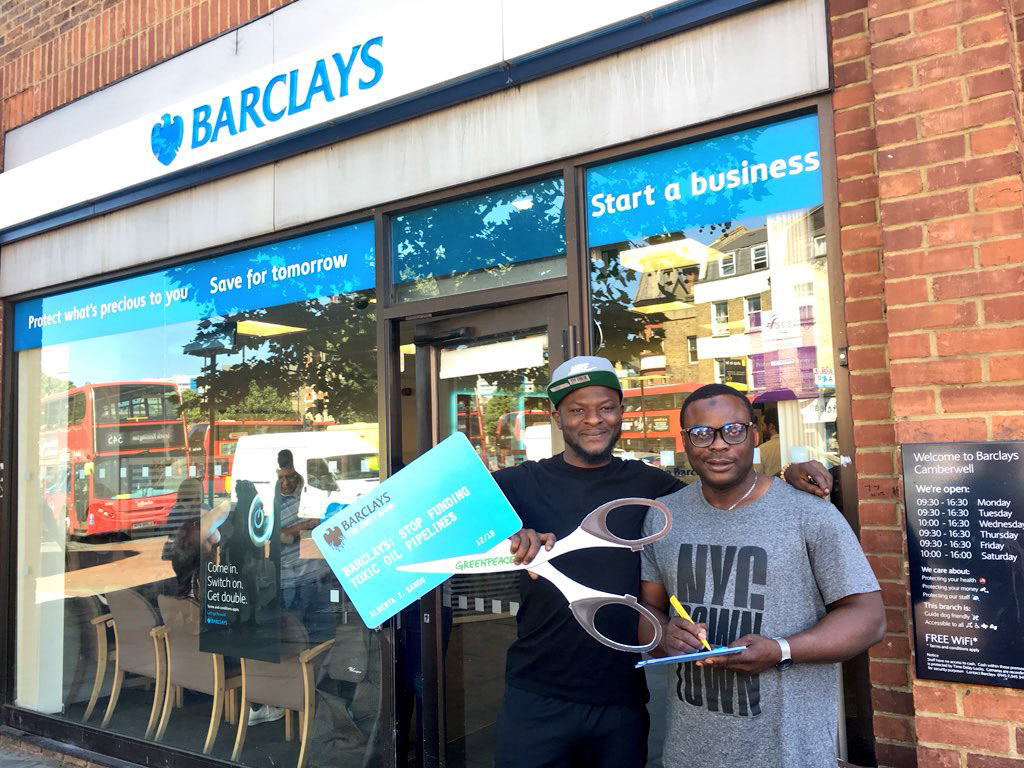
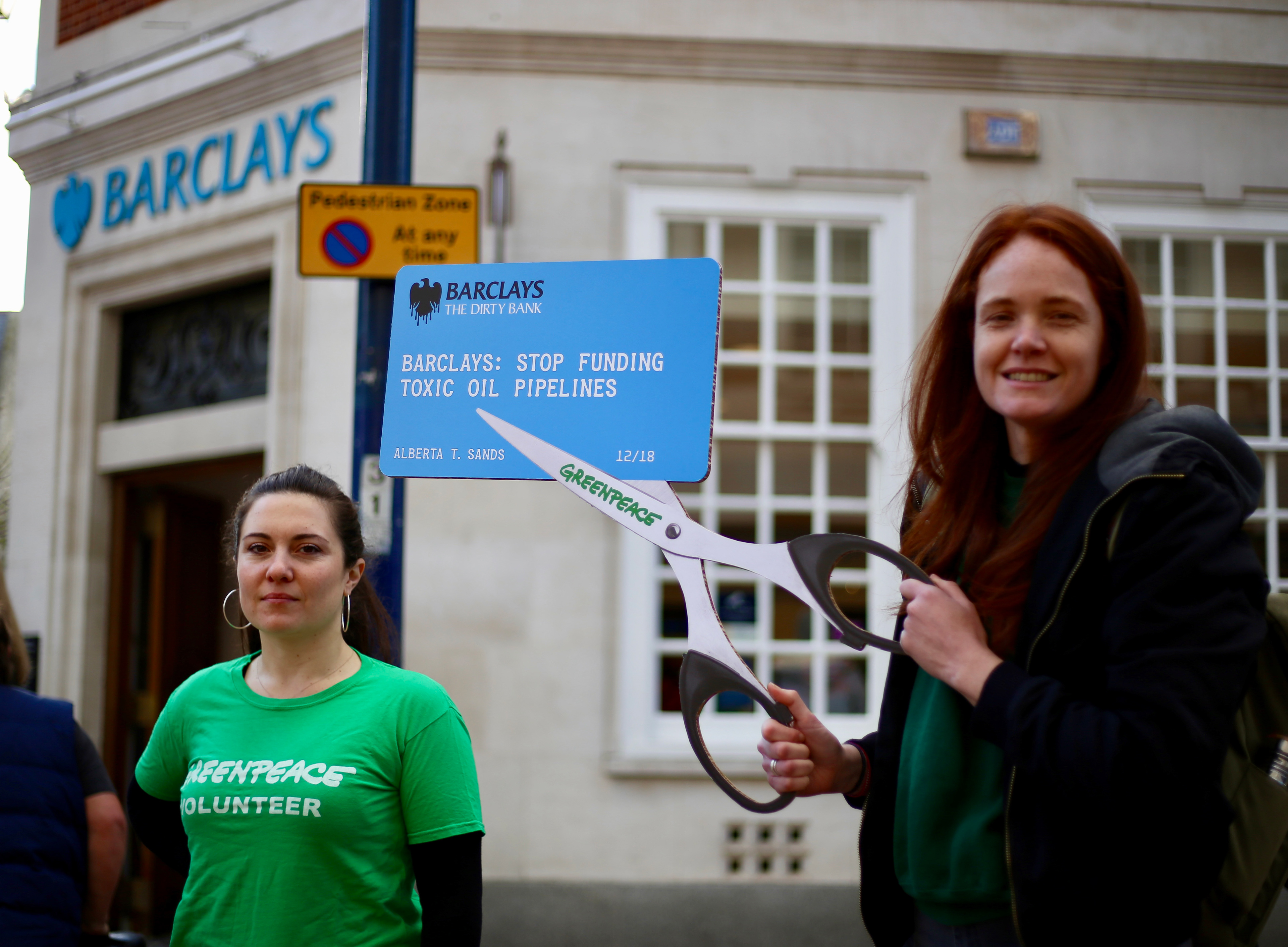
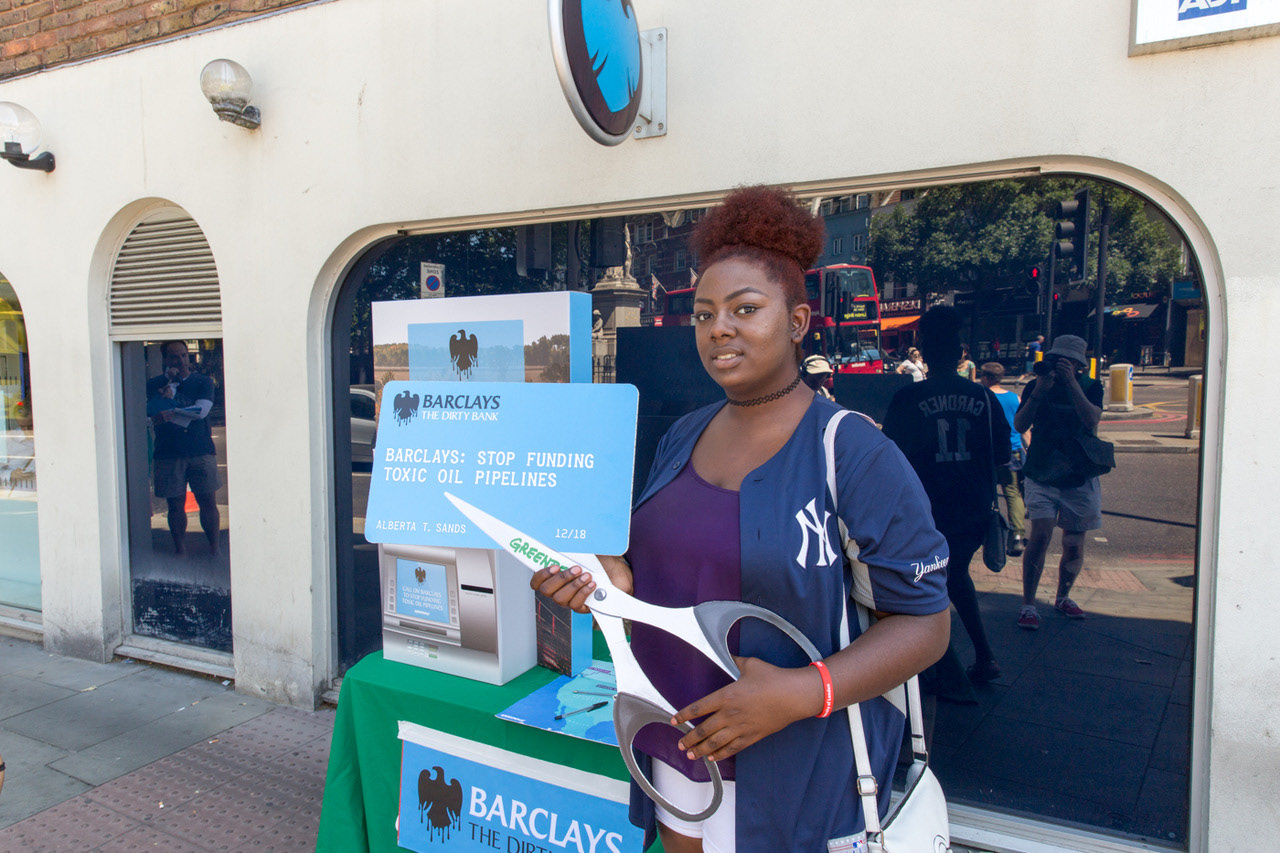
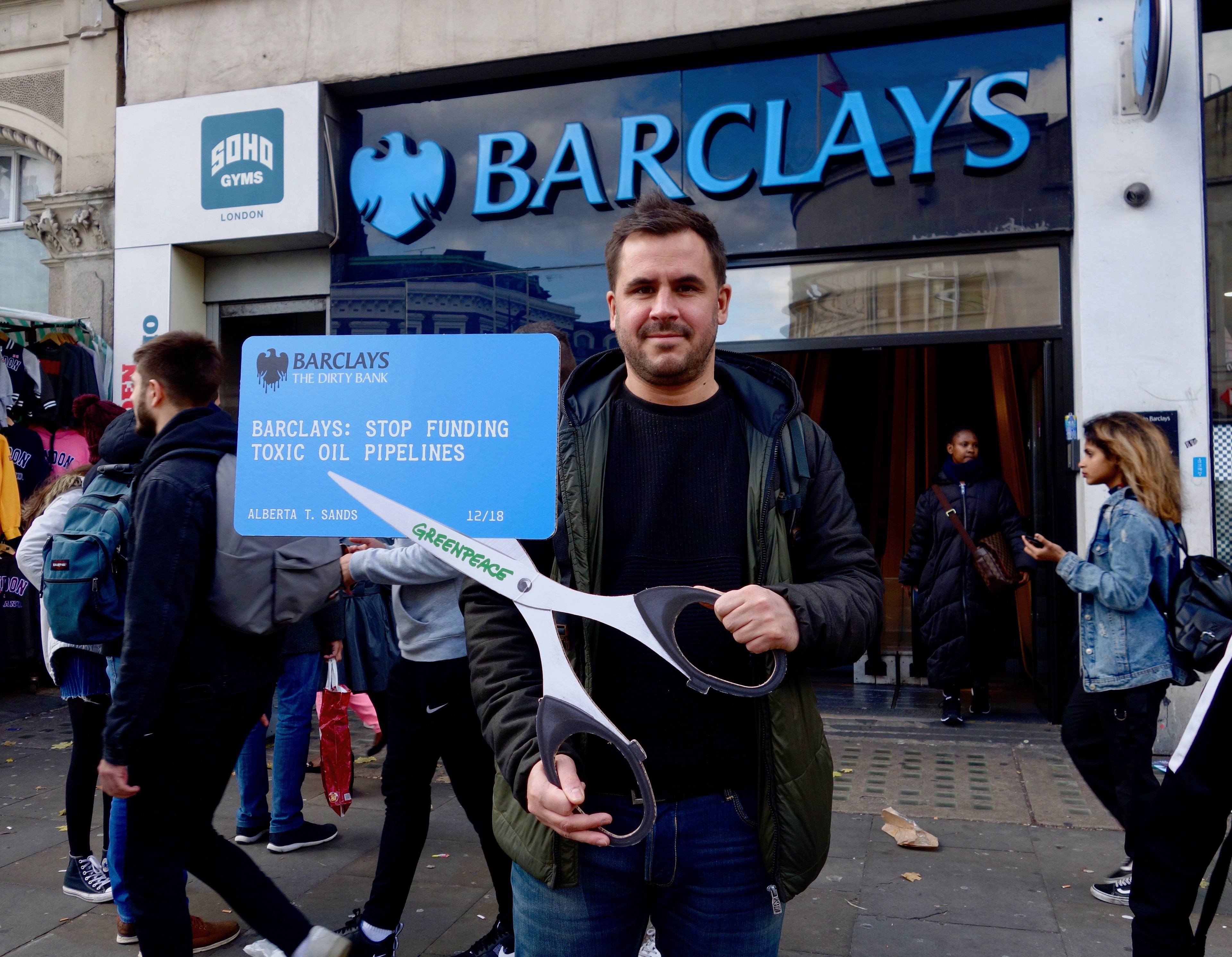
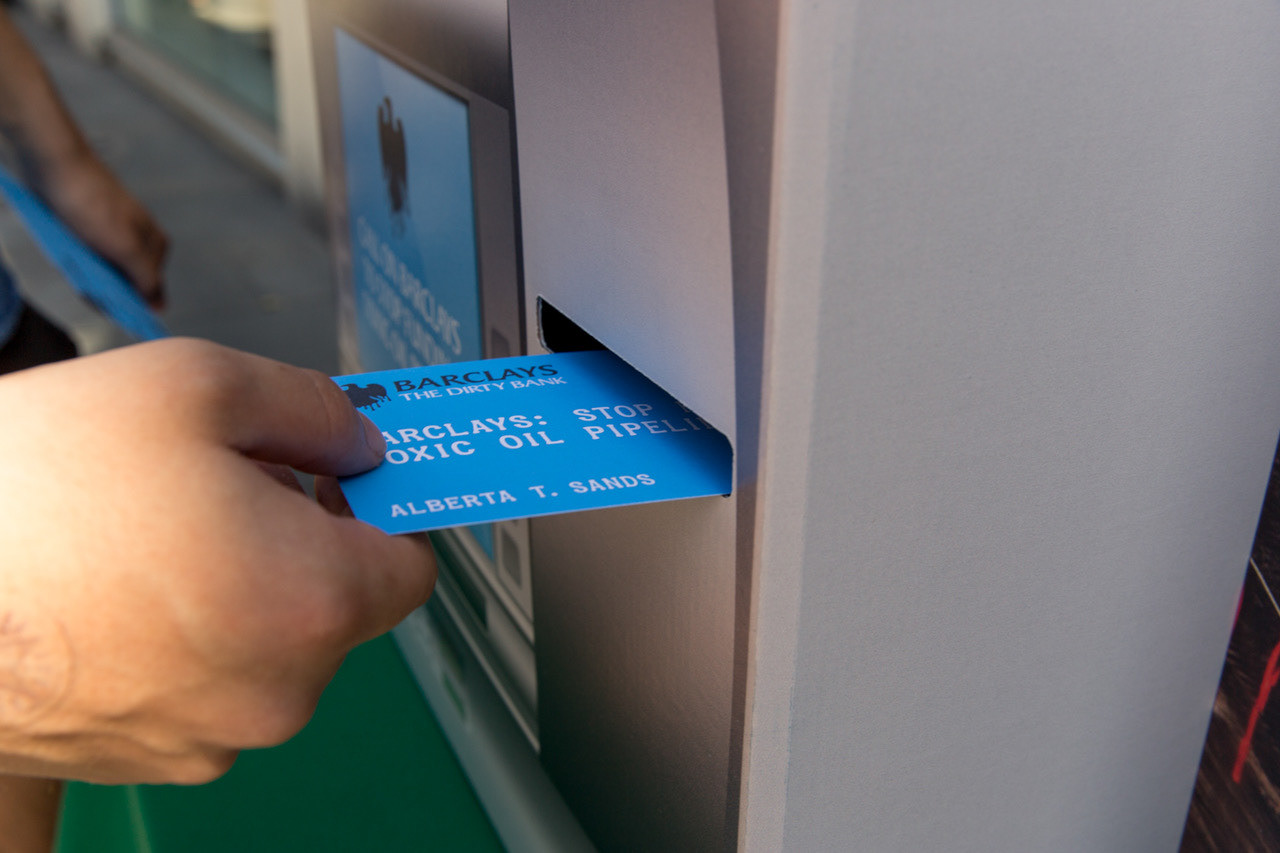

In addition to the outreach work, we also conducted a non-violent direct action where we delivered the campaign message to Barclays HQ in Canary Wharf, London.
A key part of this action was collaborating with Ocean Hyland from the Tsleil-Waututh Nation, one of the Indigenous communities resisting and being directly impacted by the tar sands pipelines Barclays is still choosing to fund. We worked to ensure that the tone of the action was appropriate and in accordance with the very serious impacts Indigenous Peoples and local communities are facing, and that Ocean was consulted throughout the planing process.
A key part of this action was collaborating with Ocean Hyland from the Tsleil-Waututh Nation, one of the Indigenous communities resisting and being directly impacted by the tar sands pipelines Barclays is still choosing to fund. We worked to ensure that the tone of the action was appropriate and in accordance with the very serious impacts Indigenous Peoples and local communities are facing, and that Ocean was consulted throughout the planing process.
Ocean came to London to witness the action and we organised a sound system for her to speak her truths and be heard. We were really appreciative and humbled by her participation.
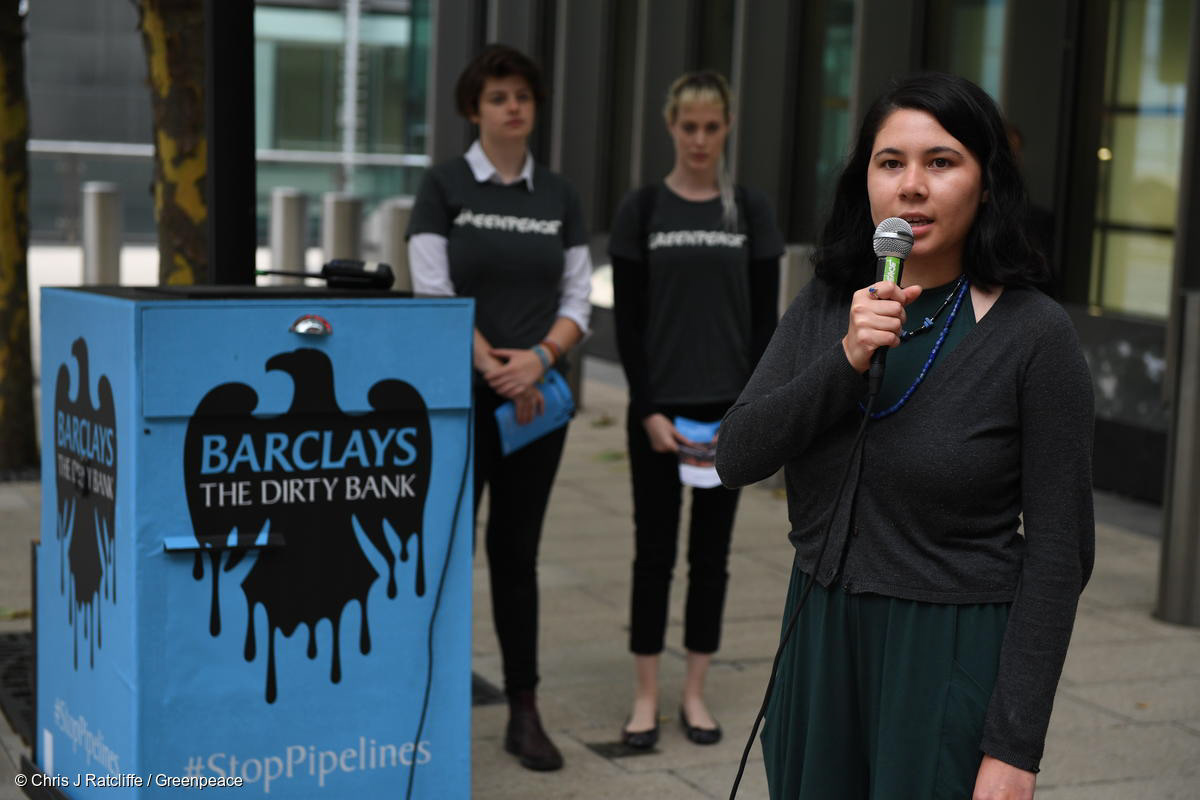
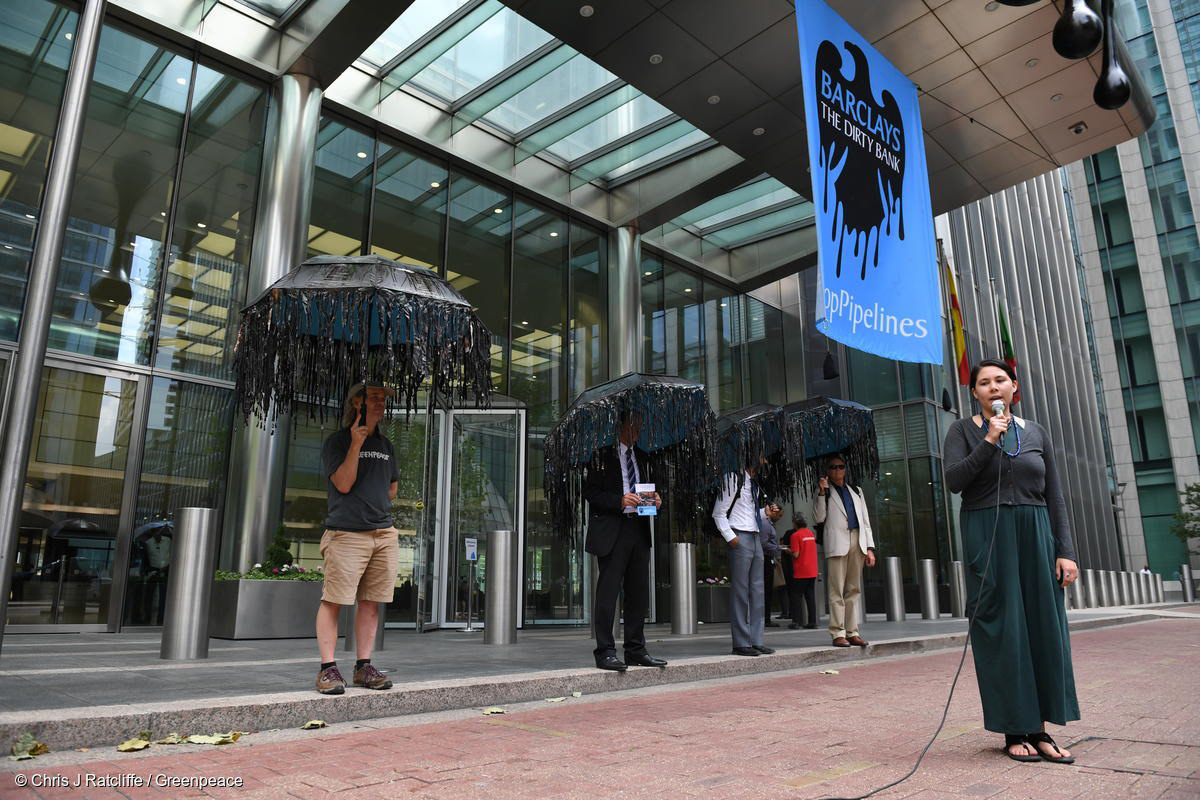
Additionally we felt it was crucial that we bring messages from the thousands of Barclays own costumers that are calling on them to drop tar sands pipelines, which were also played on the sound system outside.
Overcoming logistical challenges, a huge banner as well as some massive oil droplets were hung from Barclays' shiny portico.
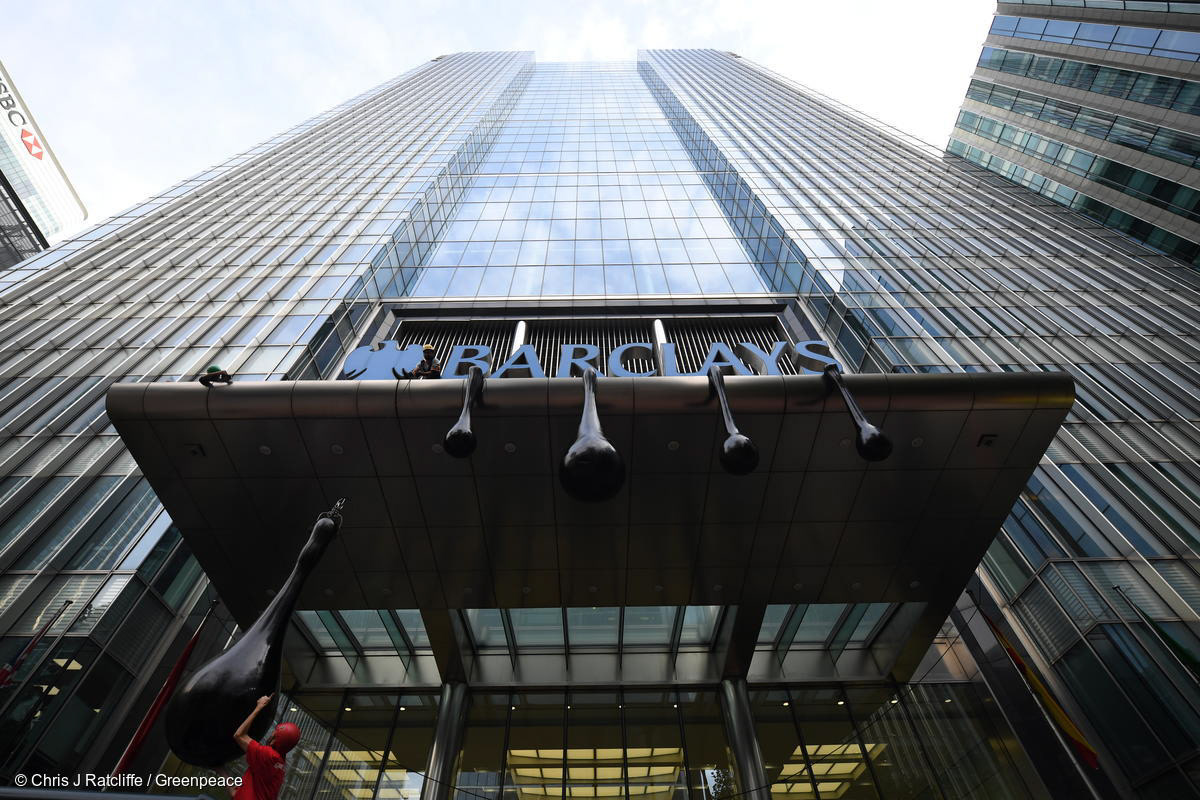
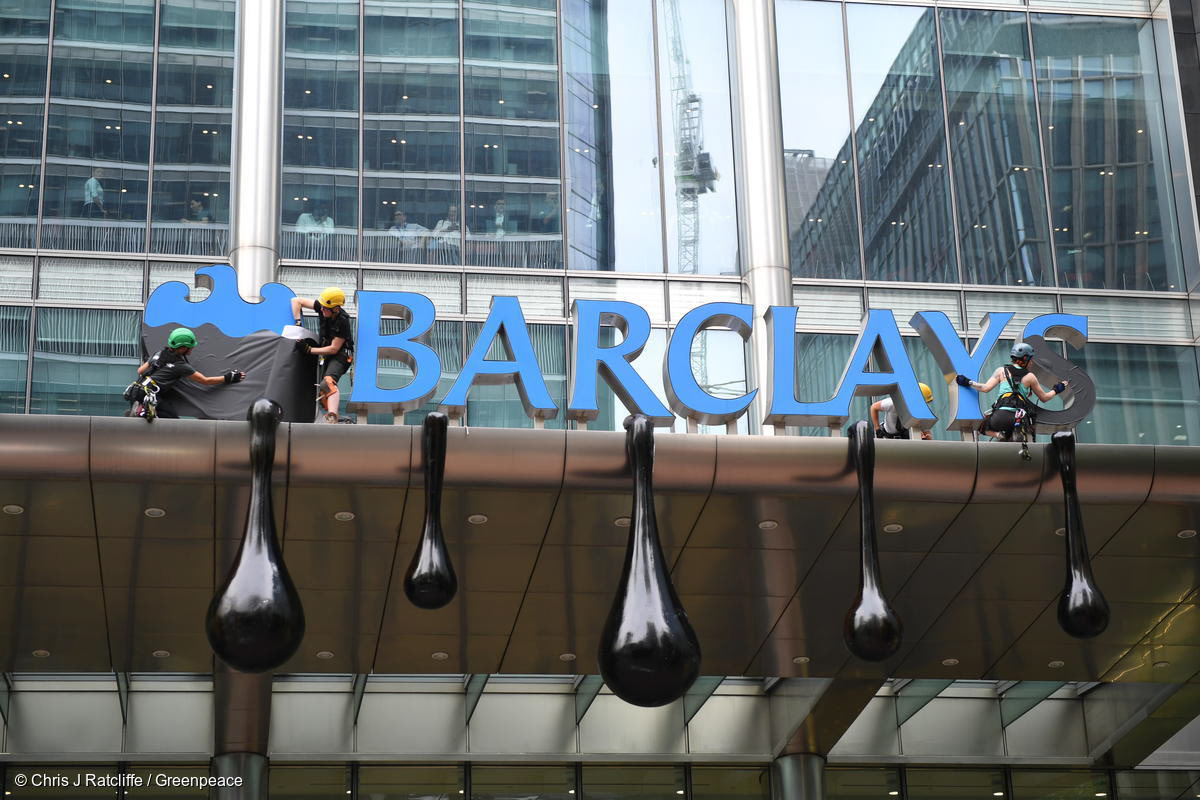
Employees queue up to enter the rebranded dirty Barclays HQ. Volunteers dressed as dirty oil bankers hand them leaflets.
Inside, volunteers rebranded the lobby, and volunteers dressed as oily bankers handed out leaflets, whilst also playing the messages from disappointed Barclays customers.
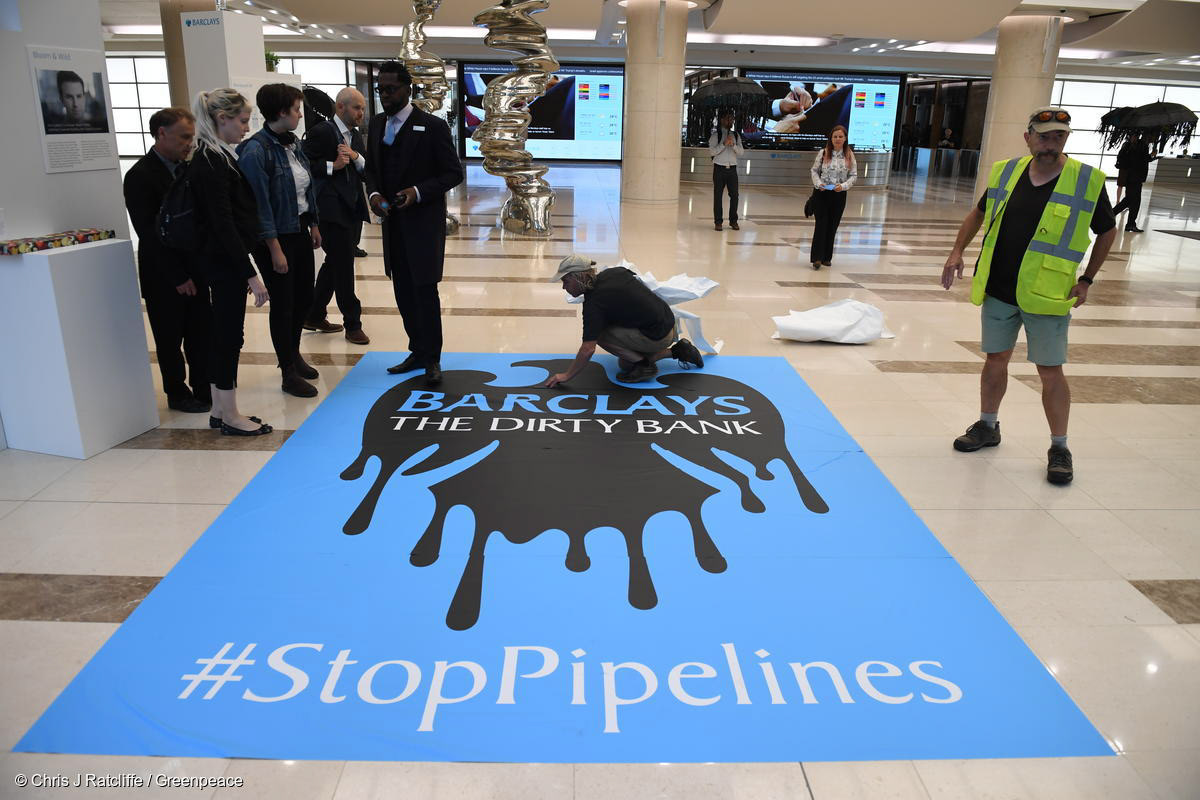
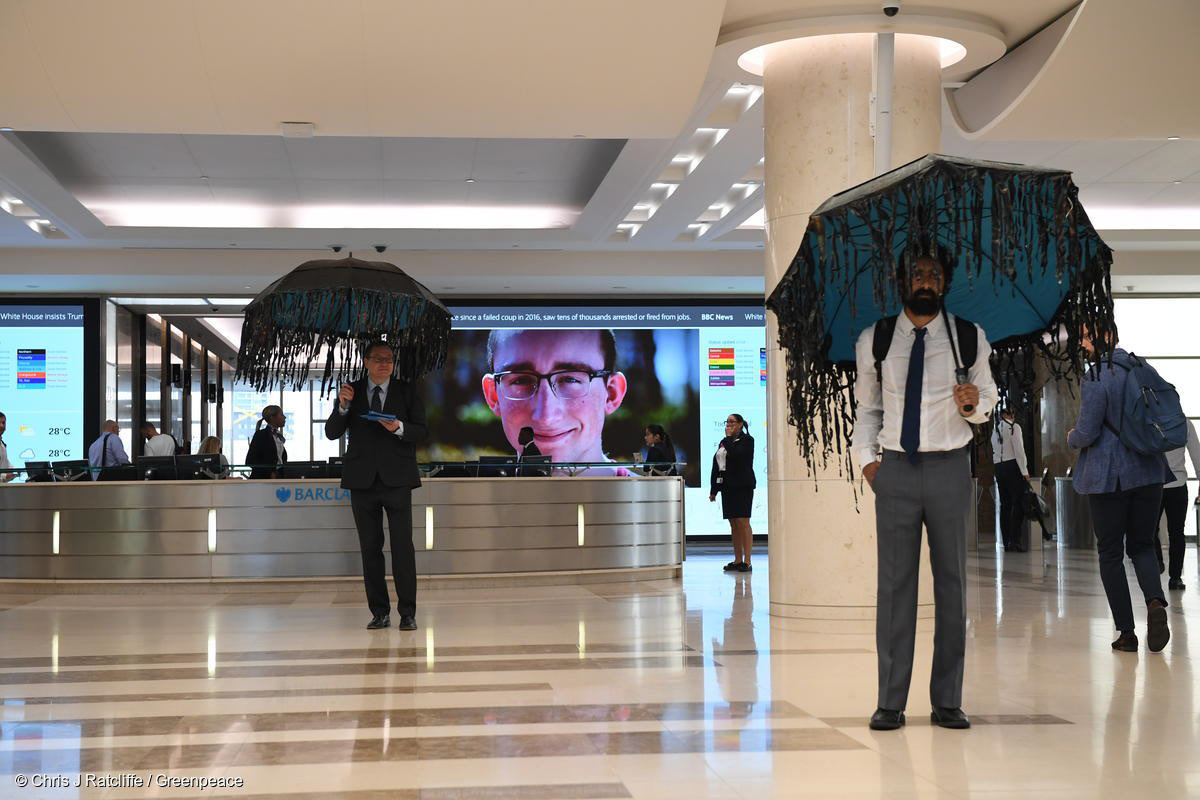
The action was successful in getting the message heard and securing a meeting with key Barclays staff and Ocean Hyland the next day.
This campaign is ongoing, and we are still putting pressure on Barclays to listen to the local communities directly impacted by this bank's lending decisions, and to the 138,282 people in the UK, including over 30K of their own customers who are calling on them to stop funding toxic tar sands pipelines.

